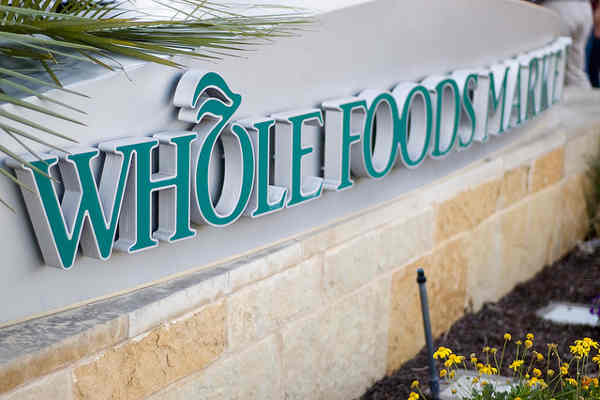Why Whole Foods Is Not As Conscious As They’d Like You To Believe
Disclosure: This post may contain affiliate links
It would be nice if Whole Foods considered animals as beings with meaningful lives, beyond an April Fool's joke and absolutely identified as an earthling.

What's in this post
This is part of our new series, Ad Nauseam– a look at advertising through the ethical vegan lens.
Recently I wrote about Earthlings on Earth Day, and how Whole Foods Market is defining the word “earthling” as human in a new ad campaign. That doesn’t sit well with me. And, while I admittedly shop at their stores (convenient location and product availability play a part in that decision), there are other things about the company that disappoint me.
There was the webpage they put up for April Fool’s Day, which featured a Cattle Cam where you could “see what your meat eats” and Cheese Layaway where, if you missed a payment, they would eat your cheese. I’m sorry, but there are some things – say, the meat and dairy industries – that just don’t warrant a light-hearted joke, no matter what the day.
Not sure why? Let’s look at Chobani Greek Yogurt for instance. Chobani says, “Everyone should be able to enjoy a pure, simple cup of yogurt.” There’s nothing simple about what goes into a container of dairy-based yogurt. Chobani’s website states that they use “only milk from cows not treated with rBST.” No mention is made of where these cows live out their lives, of the potential for painful mastitis, of the calves that head to the veal crates so that customers can keep eating ”authentic, simple” yogurt. According to their blog, it takes more than 30,000 cows to produce a day’s worth of milk for the company. Can we get real about what that means?
And then there’s ALDI’s “truth” campaign, Aldi’s Truth #25: “The same is always better when it costs less.” Not only do we have more manipulative words being thrown around in a commercial about animal products (wholesome), but we put words into a cow’s mouth: ”…paying more for it doesn’t make a lot of sense… not even to her!” Far be it from me to presume what makes sense to a cow, but I’m going to go out on a limb and assume that our taking her baby and then taking her milk doesn’t make a lot of sense, no matter how much a customer is paying. It’s important that we don’t forget the real cost of a product, for our health, for our planet, and for the animals we force to give of themselves. Truth isn’t truth when so much isn’t addressed; it’s more a lie of omission.
These advertising tactics are frequently called “greenwashing.” This practice merges “green” (environmentally conscious) and “whitewashing” (to gloss over wrongdoings) to describe the use of green marketing, which promotes the misleading perception that a company is environmentally friendly. You’ve heard it before, “eco-friendly,” “all natural,” and “humanely raised.” It’s a practice that Whole Foods is good at.
John Mackey, co-CEO of Whole Foods, has identified as vegan since 2006. A member of the Global Animal Partnership’s board of directors, he says he is “committed to helping raise others’ awareness and consciousness of the impacts of different types of farming on the animals themselves so we can all make more informed decisions.” One would think that commitment to the way animals are treated should extend to how they are mocked by one’s company.
A few years ago, I attended a talk given by James LaVeck: Let’s Not Give Up Before We Even Get Started -What the British anti-slavery movement can teach animal advocates about overcoming the politics of pessimism. In it, he references a 2005 animal rights conference where Mackey was the keynote speaker. In his speech, Mackey explains that in order to help animals it would be necessary for him to maximize profits by offering whatever products the public wanted. Later, he talks about Whole Foods’ “humanely raised” veal, and reiterates the fact that he can’t stop selling dead animals to their customers lest the company go out of business.
Is this the kind of thing Mackey discusses in his book, Conscious Capitalism? If so, I don’t know if it’s worth my time to read. The Conscious Capitalism website states that its mission, in part, is to focus on purpose, not profit. Sounds reasonable, right? But then, “We all need meaning and purpose in our lives. It is one of the things that separates us from other animals.” That’s a nervy statement to make. Are we to believe that nonhuman animals have no purpose, that their lives have no meaning? Well, no wonder there are no qualms about killing the ones that are “humanely” raised for food!
Whole Foods, and its co-founder, seem to be a mixture of purpose-based marketing and complacency with the way things are. I hope that some day, we can get to the point where the company doesn’t feel it needs to sell dead animals to stay in business. But before we get to that point, it would be nice if it considered animals as beings with meaningful lives, beyond an April Fool’s joke and absolutely identified as an earthling.
Photo credit: bookgrl via Flickr





